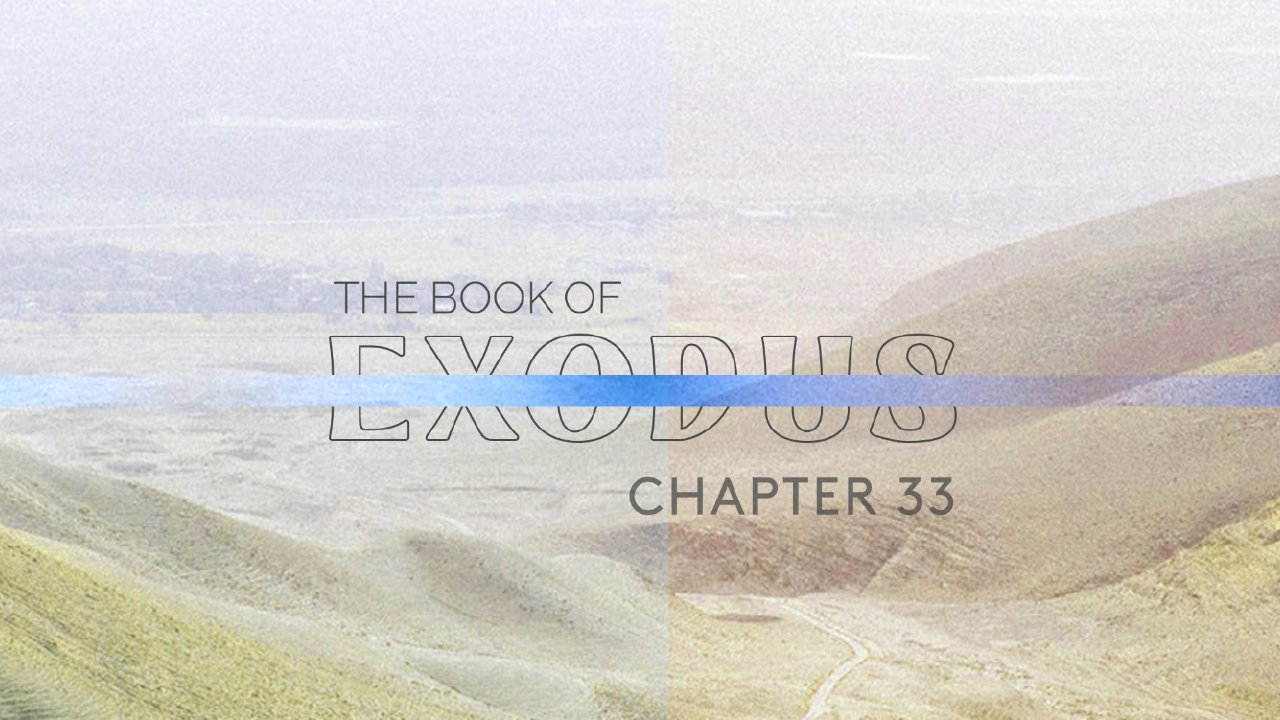In 1539, about 22 years after the Reformation had begun, a Catholic Cardinal named Sadoleto wrote a letter to Protestant Geneva, trying to convince the city to return to the Catholic Church. John Calvin had been a pastor in Geneva, but was exiled the year before. But Geneva turned to Calvin to write a response to the Cardinal.
In it, Calvin identifies the main issue of the Reformation as this: the glory of God. Calvin says to the Cardinal, “[Your] zeal for heavenly life [is] a zeal which keeps a man entirely devoted to himself, and does not, even by one expression, arouse him to sanctify the name of God.” In other words, Catholic theology is man-centered, and does not honor God as it ought. “It is not very sound theology,” writes Calvin, “to confine a man’s thoughts so much to himself, and not to set before him, as the prime motive of his existence, zeal to illustrate the glory of God.”
350 years later, in 1891, New Testament scholar Geerhardus Vos, identified this “zeal to illustrate the glory of God” as what enabled Reformed theology to grasp the fullness of Scripture unlike any other branch of Christendom. He said, “Reformed theology took hold of the Scriptures in their deepest root idea. . . . This root idea which served as the key to unlock the rich treasuries of the Scriptures was the preeminence of God’s glory in the consideration of all that has been created” (Redemptive History and Biblical Interpretation, 241).
So, this morning, on Reformation Sunday, and on Reformation Day itself, we remember our heritage as Protestants as zeal to illustrate the glory of God, and taking hold of the preeminence of God’s glory. It is a sweet Providence, as we continue our Exodus series, to open together to chapter 33 where Moses prays, “Please show me your glory.”
Ten Words to Golden Calf
This fall we have journeyed from Exodus 20 and the giving of the Ten Commandments, to the refracting of the Commandments in the case law of chapters 21–23, and to God formally making a covenant with the people in chapter 24. Then Moses goes up the mountain for forty days and nights (24:18) and there receives God’s plan for the nation’s worship: detailed instructions for a traveling temple, called the tabernacle, and its furniture and utensils, and garments for the priests and their consecration. All that in chapters 25–31.
Then we saw last week the screeching, tragic fall of Exodus 32. Just as God finishes speaking with Moses on the mountain, he informs him that the people “have corrupted themselves” (32:7). “They have turned aside quickly out of the way that [God] commanded them.” In their impatience, and pride, they “have made for themselves a golden calf and have worshiped it” (32:9). Within forty days of making a covenant with God, they have broken it, flagrantly. God says to Moses in 32:9–10, “Behold, it is a stiff-necked people. Now therefore let me alone, that my wrath may burn hot against them and I may consume them.”
Moses implores God not to destroy the people, for the sake of God’s own name and reputation, and in faithfulness to his promises. And God relents. At least for now, he will not wipe out the nation, great as their sin is. Chapter 32 ends with Moses wondering aloud whether atonement might somehow be made, whether God might somehow forgive their sin. That’s the question in the air as we come to chapter 33.
Reformation Truths in Exodus 33
On this Reformation Day, let me draw your attention to three great Reformation truths on which the account of Exodus 33 turns.
1. TOTAL DEPRAVITY (VV. 1–6)
First, the people receive a “disastrous word” about their sin and how it separates them from the holy God — which is not just a word for Israel. Look at verses 3–6:Go up to a land flowing with milk and honey [so God is fulfilling his promise to Abraham, Isaac, and Jacob]; but I will not go up among you, lest I consume you on the way, for you are a stiff-necked people.”
“When the people heard this disastrous word, they mourned, and no one put on his ornaments. 5 For the Lord had said to Moses, “Say to the people of Israel, ‘You are a stiff-necked people; if for a single moment I should go up among you, I would consume you. So now take off your ornaments, that I may know what to do with you.’ ” 6 Therefore the people of Israel stripped themselves of their ornaments, from Mount Horeb onward.”
Stiff-necked. Twice God says here (to the people) what he had said (about them) to Moses in 32:9. Then: “behold, it is a stiff-necked people.” Now: “you are a stiff-necked people.” It isn’t that chapter 32 made them stiff-necked. The great sin of the golden calf didn’t cause their necks to be stiff with pride; it revealed the stiffness of their necks. They were arrogant. They did not submit to God’s law and God’s timing. They were haughty. Stubborn with pride.
Another way to speak about this stiff-necked people, and the condition into which we ourselves were born, is the Reformation term “total depravity.” In our sin, whether at Sinai or in the modern world, we do not have untainted hearts, or untainted minds, with which to see God for who he really is, and sin for what it really is.
Total depravity does not mean we are as depraved as we can be, but that we are depraved in all our faculties. Sin has infected every aspect of our being. We do not have the ability to think or feel or choose or achieve our way out. We are “dead in our sins” (Ephesians 2:1, 5), “darkened in [our] understanding, alienated from the life of God because of the ignorance that is in [us], due to [our] hardness of heart” (Ephesians 4:18). We are born totally depraved, as Israel was. Stiff-necked as Israel was.
Verse 4 calls it a “disastrous word.” Because of their sin, God will not “go up” among them to the promised land. He will fulfill his word and send them on, but he will not be among them, lest his holiness consume them. (This is a ray of hope, and Calvin would be pleased, that the people are not content to have the promised land without the presence of God, at least in this humbling moment.)
So Israel’s honeymoon with God is over. Their sin has been exposed; his holiness has been revealed. The nation has been humbled. They remove their ornaments in verse 4: “When the people heard this disastrous word, they mourned, and no one put on his ornaments.” Now they know their sin, and what they deserve; now they will put away triumphalism and pretense, and walk with a limp, from Sinai to Canaan. May God make us today Christians without ornaments.
2. UNCONDITIONAL ELECTION (VV. 18–23)
Moses’s advocacy for the people that began in chapter 32 comes to its culmination in his brief and audacious request in verse 18, and in God’s response in verses 19–23.
By verse 18, Moses is caught in the tension between God’s holiness and the nation’s need for mercy. On the one hand, the people deserve to be consumed. And God, in his holiness, cannot simply be among them, in their sin. Given God’s holiness and the people’s sin, how can Moses confidently “go up” from Sinai to the promised land. Will this not end in disaster? So Moses wants to know more about this God. Who is he? What kind of God is he? Will he forgive? And so he says in verse 18, “Please show me your glory.”
God’s response, then, in verses 19–23 has two parts: a revelation and a limitation. First, the revelation in verse 19. God says,
“I will make all my goodness pass before you and will proclaim before you my name ‘The Lord’ [Yahweh, as we saw in Exodus 3]. And I will be gracious to whom I will be gracious, and will show mercy on whom I will show mercy.”
This is the kind of answer Moses was looking for. When God says, “I will make all my goodness pass before you,” he addresses Moses’s fear about the badness of the people, their depravity, their stiff necks. God does not point to the people’s lack of goodness, but to the reality of his own. He will uphold the covenant with his people, not because of their goodness, but because of his goodness. His choice of Israel to be his people is not based on their deservedness. His election of his people is without their meeting any conditions. That is, unconditional election — true at Sinai, true of the church.
God is utterly free to choose whom he will as recipients of his mercy, with no external constraints. He is not dependent on Israel’s choice. He is not dependent on our goodness. He is free to choose any people, and any persons, he so chooses. You want to know why you can count on his commitment to his people? Not because of their goodness, God says, but because “I will be gracious to whom I will be gracious, and will show mercy on whom I will show mercy.”
And this goodness of God on display in his grace and mercy is his glory — his weight, his character, his heart. And this is the answer Moses needed to go forward. This is not on the people. And this is not on Moses. This is on God. He has chosen his people. He will see them through. His goodness and sovereign freedom in choosing whom he will sustains the covenant. And so the Reformation slogan was soli Deo gloria, to God alone be the glory.
So, God’s unconditional election of Israel was a precious word to Moses, and to the people. And it is a precious balm to God’s people today, and especially to the weak in faith, to those who doubt, to those who are honest with themselves about own lack of goodness, who wonder, Can God really show someone like me grace? Can he really have mercy on me? Can he forgive? He knows how bad I am.
If that’s you this morning, I want you to hear your Father reply, without equivocation, and with a smile, “I will be gracious to whom I will be gracious, and will show mercy on whom I will show mercy.” I choose you not because you are good, but because I am. Your badness cannot stop my choice. Your evil cannot spoil my freedom when I set my love upon you. I am free to show you mercy, free to show you grace, free to choose you, despite your sin; free to love you, however unworthy you feel.
But God’s not done. There is not only the answer Moses needs, the revelation, but also a limitation. God says “But” in verse 20:
“But,” he said, “you cannot see my face, for man shall not see me and live.” 21 And the Lord said, “Behold, there is a place by me where you shall stand on the rock, 22 and while my glory passes by I will put you in a cleft of the rock, and I will cover you with my hand until I have passed by. 23 Then I will take away my hand, and you shall see my back, but my face shall not be seen.”
Moses will get to glimpse the glory of God, but it will be only a glimpse — not God’s face, but his back. Moses may know more of God, but not all of God. Which Moses will have to be content with for now. But God is not done revealing himself to Moses and to Israel.
As God has shown his glory in redeeming his people from Egypt, he will show his glory in preserving them in the wilderness for forty years, and making the walls of Jericho fall, and bringing his people into the promised land, delivering his people through the time of the judges, and in taking a humble shepherd boy and putting him on the nation’s throne. And God will show his glory as he justly punishes the nation’s idolatry in decline and exile, and when he raises up prophets to proclaim hope beyond exile.
And he will show his glory when he himself enters the world as a humble infant, laid in a manger, and lives in obscurity for thirty years. He will show his glory when he calls and trains disciples and heals the sick and proclaims good news. And climactically he will show his glory on a hill called Calvary outside Jerusalem, where God himself, in the person of his Son, bears the sins of his people — like Moses could not do — and takes upon himself all the destruction we deserved for depravity and stiff necks. And then the glorious God rises again in triumph.
What Moses could not yet see of the glory, we see far more fully in Jesus, especially at the cross. When Moses cried, “Show me your glory,” it’s as if God responds, “Just you wait. For now, Moses, I’ll proclaim my name. I’ll renew the covenant. You’ll see part. And one day, I’ll show you and the world far more of my glory.” And that glory is the gospel that Jesus, who is God himself, died to save idolaters like us. The gospel of Jesus is the culminating revelation of God’s glory.
3. ALIEN RIGHTEOUSNESS (VV. 7–17)
Now, finally, with Jesus already in view, let’s marvel at the Christlike intercession of Moses in verses 7–17 as he leverages his own favor with God for the sake of the people.
Verses 7–11 create a striking tension with verses 1–6 and the “disastrous word” about the people’s stiff necks and depravity. Verses 7–11 present an amazing contrast in God’s favor on Moses. God has said to the people, You are stiff-necked; if I go up among you, I’ll consume you. Yet, the holy God speaks “to Moses face to face,” verse 11, “as a man speaks to his friend.”
You might wonder at this point, didn’t we just see in verse 20 that God said “you cannot see my face,” and in verse 23, “my face shall not be seen”? But here, in verse 11, God speaks “to Moses face to face”? That’s a good question. I think the answer is, as one wise commentator says about verse 23, “The attempt to describe the indescribable strains language to its limit” (Alec Motyer, Exodus, 299). Verse 11 includes “two idioms for direct communication” (Robert Alter, Hebrew Bible). The point is, in verse 11, God’s stunning favor on Moses.
Watch, then in verses 12–17, how Moses leverages his favor with God (he mentions it four times!) to intercede for the people — the people that God has been saying to Moses are “your people, whom you brought up out of the land of Egypt” (32:7; again in 33:1):
When Moses asks in verse 12 about the identity of the angel, he slides in, at the end of verse 13, “Consider too that this nation is your people.”
Then in verse 15, after God has promised to go up with him, Moses moves from “me” to “us”: “If your presence will not go with me, do not bring us up from here.”
Then twice in verse 16, he identifies himself with the people: “how shall it be known that I have found favor in your sight, I and your people? Is it not in your going with us, so that we are distinct, I and your people, from every other people on the face of the earth?”
In other words, Moses, knowing he has found favor in God’s sight, seeks to leverage that favor for the sake of the people. And God grants Moses his request. Verse 17: “This very thing that you have spoken I will do, for you have found favor in my sight, and I know you by name.”
And if God would do that for Moses, how much more for his own Beloved Son, in whom he is well pleased?
Jesus’s Favor and Faith Alone
“Alien righteousness” is the term Protestants have used to talk about the righteousness with which we are justified, fully accepted, before the holy God.
On our own, we, like the people of Israel, are unrighteous, ungodly stiff-necked, totally depraved. But Jesus Christ is righteous. He is God’s Beloved Son. He has found full favor with God. Christ is our righteousness before God, not our own. So, our righteousness is an alien righteousness, not native to us.
Jesus is not only the better glimpse of divine glory but also, as man, the better Moses who leverages his favor with God for the sake of his stiff-necked people, joined to him by faith alone.

Show Us Your Glory
Exodus 33
October 31, 2021 • David Mathis
More from
Exodus (Part 2)






